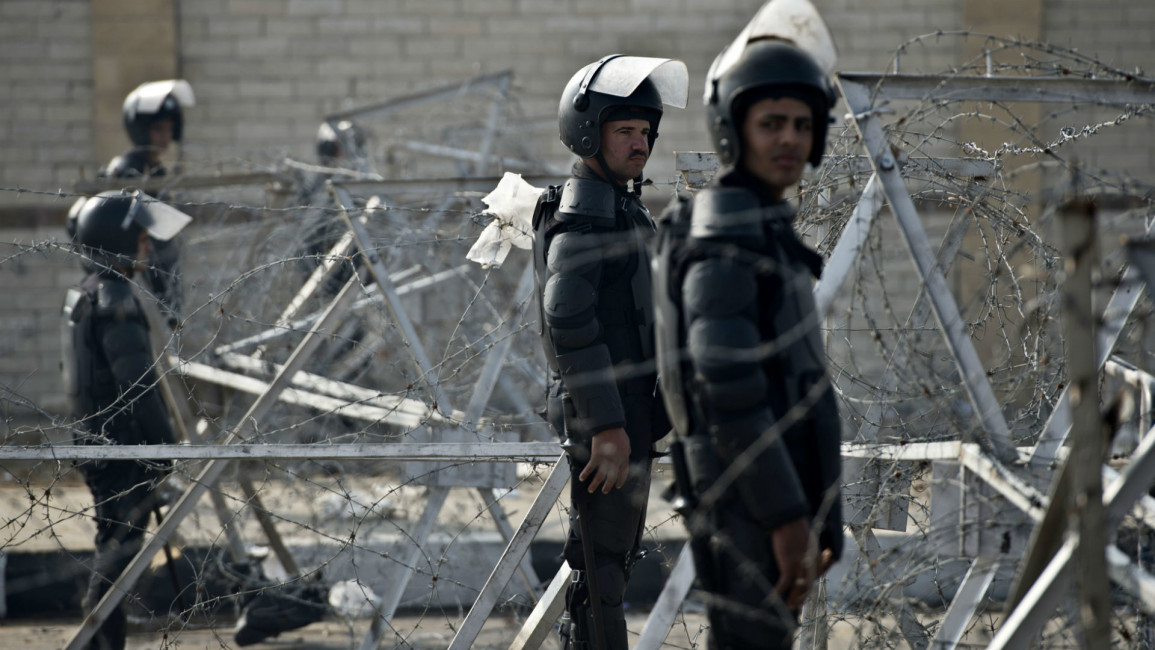Freedom in Middle East in steep decline, says report
The people of the Middle East have experienced some of the worst declines in civil and political freedom in 2014, according to a report by the US watchdog Freedom House.
The region were devastated by terrorism, the report says, with groups massacring state security forces as well as civilians, kidnapping foreigners and killing or enslaving members of religious and ethnic minorities.
Freedom House's annual report, Discarding Democracy: Return to the Iron Fist, found that freedom declined globally for the ninth year in a row, with 60 percent of the world's population living in countries that are "not completely free".
The study evaluated 195 countries and 15 territories. It concluded that 61 countries became less free in 2014, while freedom improved in only 31.
"More aggressive tactics by authoritarian regimes and an upsurge in terrorist attacks contributed to a disturbing decline in global freedom in 2014", the report said.
Failures in the Middle East
Syria, where the civil war is in its fourth year and the Islamic State group has extended its reach, was ranked among the world's worst countries.
Tunisia was an exception in the region. After holding democratic elections under a new constitution, it became the Arab world's only country to gain the status of "free". Morocco, Turkey and Lebanon remain "partly free".
Freedom House praised sanctions on Russia by western democracies but said that leaders of these democracies compete for China's favour and support the Egyptian president, Abdel Fattah al-Sisi despite both countries having poor records on political and civil rights.
| More aggressive tactics by authoritarian regimes and an upsurge in terrorist attacks contributed to a disturbing decline in global freedom in 2014. |
The report continued to class Israel as "free" but said its attack on Gaza last summer, which killed 2,200 people, was disproportionate.
The report said that a troubling number of large, powerful countries had moved backwards. Russia, Venezuela, Egypt, Turkey, Thailand, Nigeria, Kenya, and Azerbaijan were all cited. It said democratic standards had also declined in Hungary, an EU member.
The report cited Russia's annexation of Ukraine's Crimea region. Crimea, which was evaluated separately for the first time, received the "Not Free" status as Tartars and others who opposed Russia's annexation were deprived of their rights. Russia itself was labeled "Not Free". The report criticised its president, Vladimir Putin, for cracking down on dissent and vilifying gays.
The US remained among the best-ranked countries . Freedom House did however criticise the severity of the CIA's post-9/11 torture programme, which was recently made public in a Senate report, and also noted the "repeated failure" of the US to prosecute police officers who killed unarmed black men in New York and Missouri.
In Latin America, Freedom House denounced Venezuela's mass arrests of anti-government protesters and an increase in the number of political prisoners. It called the country a "textbook case of political and economic dysfunction", where a "toxic mixture of corruption, misrule and oil-price declines brought shortages, rampant inflation, and enhanced repression".
The report said Brazil and other Latin American democracies had responded in silence to Venezuela's deterioration.
Methodology
Freedom House bases its methodology on the UN's Universal Declaration of Human Rights. Each country or territory is rated in two categories - political rights and civil liberties - and given a score between one and seven, with the lowest figure representing the greatest freedom. The two ratings are based on scores in 25 sub-sections.
The average of the two scores determines whether it is "Free", "Partly Free" or "Not Free".
Freedom House says that the report studies "the real-world rights and freedoms enjoyed by individuals, rather than governments or government performance. Political rights and civil liberties can be affected by both state and non-state actors, including insurgents and other armed groups".



